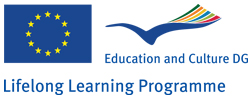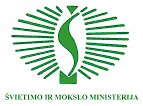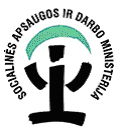|
CONFERENCE - PROGRAMME

International conference "Cultural vehicles in
education"0
10 -12 November 2008
Vilnius, Lithuania

co-funded by the European Union, as part of the
Grundtvig project
134276-LLP-1-2007-1-PL-Grundtvig-GMP
Conference is supported by:


Conference programme
Monday, 10th November
09:00-11:00 Registration
11:00-11:25 Introduction to the conference
- Rolanda Sliaziene, Manager and Programme Coordinator,
Youth Centre Babilonas.
Opening of an exhibition of works of art created during CVE workshops.
Welcome from the participants of Lithuanian workshop group.
11:25-11:45 An overview of "Cultural
Vehicles in Education - assisting the needs of
vulnerable social groups" project (CVE) -
Maria Schejbal, Project's Coordinator, Grodzki
Theatre Association, Poland. Aims and ideas, the
concept of "cultural vehicles", international co-operation,
best practices, international Grundtvig courses
for adult educators.
11:45-12:15 Introduction to Cultural
vehicles in education (CVE) - a new methodology.
Best practices during adult education workshops
in Poland, Germany, Czech Republic and Lithuania
- Agnieszka Ginko-Humphries, head of workshops
monitoring team, editor of CVE methodology guide,
Grodzki Theatre Association, Poland
Question time.
12:15-12:30 Film presentation of workshops in Poland
12:30-13:00 Creative Ways of Intercultural
Learning - Hanna Blößer, Monitoring Expert and
Barbara Kuhn, developer and instructor of the workshop
program,
Die Wille gGmbH, Germany. Question time.
13:00-13:15 Film presentation of workshops in Germany
13:15-14:30 Lunch
14:30-15:00 Facilitating education
of Roma adult learners - Kumar Vishwanathan, Director
and Chairperson of Life Together, Czech Republic.
Question time.
15:00-15:30 Training abroad -
applying for funding for attending European training
courses for adult educators - a presentation by
Grundtvig National Agency representative, Vilnius,
Lithuania
Question time.
15:30-16:00 Tea/Coffee break
16:00-16:15 Film presentation from Lithuanian workshops.
16:15-17:00 Performance by Czech workshop group.
Tuesday, 11th November
09:30-16:30 Workshops "Cultural
vehicles in education in practice":
1. Borders, Limits, Boundaries and How to Deal With Them (Theatre) - Die Wille
gGmbH, Germany
2. From an object to the puppet (Theatre with puppets) - Grodzki Theatre Association,
Poland
3. Subcultures: Am I Hip Hop (Dance, visual arts) - Youth Centre Babilonas,
Lithuania
4. Wedding ceremonies in different EU countries (Theatre) - Life Together,
Czech Republic
(11-11.30 - tea/coffee break, 13:30-14:30 lunch)
16:30 - Presentations of the workshops
Wednesday, 12th November
09:30-11:00 Presentations by experts
on the issues of creative learning:
1. The use of Theatre of the Oppressed method for empowering adult learners
and enhancing their intercultural competence: theatrical and pedagogical tools.
- Christina Zoniou, Greece
2. Creative learning in Portugal - Catarina Pydzinska, Portugal
3. Storytelling - Inno Sorsy, Great Britain
4. Exploring the ways how music practice can be made more inclusive, creative,
social and developmental - Robert Wells, Great Britain
5. Art as a chance in the perspective of intercultural misunderstanding - Liutauras
Degesys, Lithuania
6. The subjective conditions in the process of learning with the use of artistic
and cultural means- Dr. Jacek Bielas, Poland
7. The Knowledge Society - the role of creativity and innovation - Brian Holmes,
Head of the Department of Lifelong learning of the European Commission in Brussels
11:00-11:30 tea/coffee break
11:30-13:30 Panel discussion. "What
is it like to be a learner under the kind of
educational circumstances that our project was
developing, calling them "vehicles in education"?
First of all, what subjective conditions could
be identified in the process of effective learning?
For instance, what is the difference (including
the difference in educational value) between
merely explaining somebody something and making
him/her understand it?”
Leader of the panel discussion - Dr. Jacek Bielas, Poland
13:30-13:45 Summing up by the leader of the panel discussion and ending speech
- Rolanda Sliaziene, Manager and Programme Coordinator, Youth Centre Babilonas.

Project leader: Grodzki
Theatre Association, Bielsko-Biala, Poland, www.teatrgrodzki.pl
|